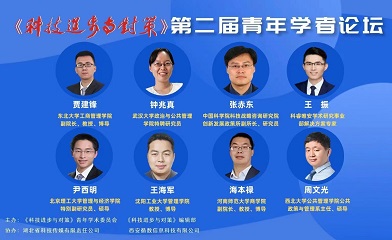Sci-tech Talent Cultivation
Huang Qing,Zhang Jie,Jiang Chunyan
In an increasingly complex and changeable economic environment, enterprises must keep promoting innovation to survive, succeed and create competitive advantages. In order to gain a sustainable innovation advantage, organizations should internalize the spirit of innovation into the work habits of every employee. Then how to develop employees' innovative habits and stimulate their innovative behavior? In recent years, many scholars have found that individual factors (e.g., personal traits, psychological states and cognitive styles) as well as team factors (e.g., leadership style, knowledge flow and team climate) have a significant impact on employees' innovative behavior. Therefore, they suggest screening employees with certain characteristics or creating a certain type of work climate. However, the above means (approaches) are too general to be applicable in the current research context and do not necessarily answer the research questions.#br#Through interviews with managers and grassroots employees, it is understood that changes in the external economic environment first hit the organization's business, which brought about adjustments in employees' job content and work styles, as well as higher demands on their skill variety. In this context, focusing on employee skill variety (job characteristics) rather than individual employee characteristics takes into account the contextual relevance of innovation activities and helps to deeply analyze the antecedent variables affecting employee innovation behavior. In addition, in job diagnostic research, Hackman and Oldham (1975) asserted that job characteristics affect employees' work output by influencing their psychological states. Inspired by this, this paper focuses on employees' psychological cognitive states and explores the serial mediating effect of core self-evaluation and harmonious passion between job skill variety and employees' innovative behavior from a self-perception perspective.#br#Given the need for the sample to closely fit the research question, this paper selects two high-tech companies that place a high priority on optimizing the skills of their employees from the manufacturing industry to distribute the questionnaires. The subjects are the front-line employees of different ages and departments in the two companies, such as those engaged in technical support, performance development, R&D experiments, on-site processes, product testing and after-sales service. These employees are required to have diverse work skills in terms of work tasks, work content and job responsibilities. After conducting a two-stage questionnaire, the study collects a total of 395 data from 395 supervisor-subordinate dyads. Then it runs the confirmatory factor analysis and common method variance test, descriptive analysis, correlation analysis and bootstrapping to test the data. The results show that the selected scales have good discriminant validity;there are no serious common method variance problems;the data results of correlation analysis initially support the main research hypotheses;the data results of structural equation modeling further prove the theoretical hypotheses.#br#Specifically, the results show that (1) job skill variety has a positive effect on core self-evaluation, harmonious passion and innovative behavior;(2) both core self-evaluation and harmonious passion play the mediation role in the relationship between job skill variety and employee innovative behavior;(3) job skill variety has an indirect effect on employee innovative behavior through the multiple mediating effect of core self-evaluation and harmonious passion.#br#The implications for managers arising from the study as follows: (1) it is essential to pay attention to the diversity of employees' job skills, carry out job analysis and job design in conjunction with market changes, and update employees' job descriptions in a timely manner;(2) employees' psychological perceptions are important so that it is necessary to collect employees' feedback on job characteristics in a timely manner, and guide and improve employees' core self-evaluation through various communication channels (e.g., weekly and morning meetings, psychological counseling);(3) it is also meaningful to take effective measures to stimulate and maintain the harmonious-type passion of grassroots employees. This paper creatively integrates the relevant research on job characteristics, self-cognition and innovative behavior, and discusses the relationship between skill variety and employee innovative behavior from the perspective of self-enhancement. It expands the application scope of self-enhancement theory, and promotes the combination of job design and social psychology.#br#
